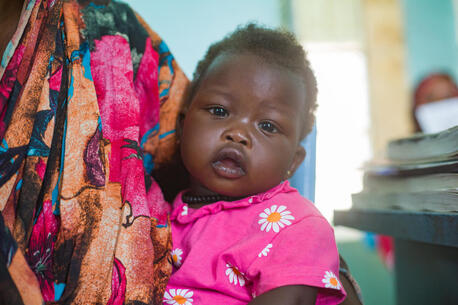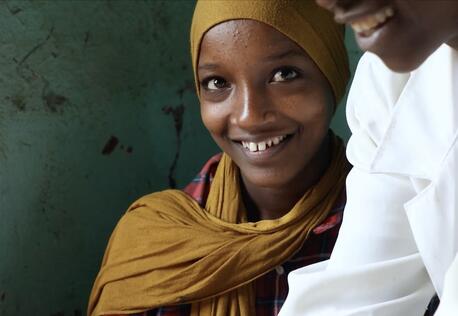
Parenting: 9-Month-Old Babies' Developmental Milestones
All you need to know about your growing 9-month-old.
Once babies turn 9 months old, their journey of growth and discovery reaches exciting new heights. Embracing newfound mobility, your little one is likely crawling, pulling themselves up to stand, and eagerly exploring their surroundings.
Babies are also becoming more verbal at this age. They now respond to their name and "find" new words each day. You have grown, too. After nine months of getting to know each other, you may find it easier to read their facial expressions and understand what they want and need.
Your growing bond makes everything easier. At this age, babies begin to seek cuddles and ask to play. Peek-a-boo and pat-a-cake are just some cherished pastimes you and your 9-month-old can share.
A 9-month-old baby's physical leaps make a host of new activities possible. Of course, that comes with new challenges. As your baby's curiosity blossoms and they get on the move, baby-proofing the house can suddenly become a top priority. Once babies begin crawling, making their environment safe becomes more important than ever.
Social and emotional milestones
At 9 months, your baby's advancing social and emotional connections make them more discriminating. As a baby becomes their own person, they are likely to:
- Display attachment to familiar adults.
- Demonstrate wariness of strangers.
- Show preferences for specific toys and games.
- Experience separation anxiety.
How can you help them? Following their cues throughout the day, especially during playtime, builds their trust and provides comfort.
Ways to bond with your baby through play
There's nothing like spending time with a baby to bring out your silly side. Everything can become a game.
- Babies enjoy pointing. Encourage your baby to identify objects in picture books by asking them to point out things they see.
- Get creative and cut out magazine pictures that the two of you can arrange to tell your own stories. Activities like these promote imagination and language skills.
- Identify the objects your baby sees around the house or on your trips to the park, playground or grocery store. This simple practice supports their language and communication skills.
Language and communication development
Your baby expresses their needs and engages with their surroundings by:
- Pointing at objects of interest.
- Using simple words like "no."
- Copying sounds and movements.
Reading together and asking them to name objects is one of the best ways to boost babies' language skills. Especially if you make it fun — it's never too early to start playing "Eye Spy."
Brain development milestones
9-month-old babies show off their growing cognitive and motor skills by:
- Playing games like peek-a-boo.
- Following your movements and tracking objects should they fall.
- Knowing how to transfer items from one hand to the other.
Playing with your baby is fun and beneficial for them. You can nurture your baby's brain by offering stimulation and support during playtime.
Babies at 9 months are also getting better at using their thumbs and forefingers. You can help them refine their fine motor abilities by offering them tiny items to grasp.
Progress in movement and physical growth
Babies at this age will show their increasing independence by:
- Sitting unassisted.
- Pulling up to a standing position with support.
- Beginning to crawl.
Help your baby learn new things by creating a safe environment for exploration and providing support as they engage in new activities.
To help them maintain their balance and confidence, give them a sturdy chair or table to hold onto as they practice pulling themselves up.
Before they master crawling, baby-proof your home, plug up electrical outlets and round off sharp edges using soft corner protectors to ensure they can maneuver easily.
Food and nutrition for your 9-month old
By the time your baby is 9 months old, they will be eating a mix of breast milk or formula and some solid foods. By now, babies should be:
- Exploring new textures.
- Moving on to thicker, puréed foods and some finger foods.
- Showing reactions to new tastes and aromas.
Offer balanced meals and snacks throughout the day to support your baby's nutritional needs. Introducing new soft foods helps them expand their palates before their teeth come in.
Things to monitor
Witnessing a 9-month-old's newfound sense of mastery as they learn to crawl, talk and get ready to walk is incredibly rewarding. Each new phase can also come with puzzling or hard-to-understand challenges.
If your child isn't meeting most of their 9-month developmental milestones, losing skills or if you have concerns, don't hesitate to seek help. Checking in with your child's doctor or healthcare provider can often allay your fears, giving you the peace of mind you need to enjoy every moment of your baby's first year to the fullest.



